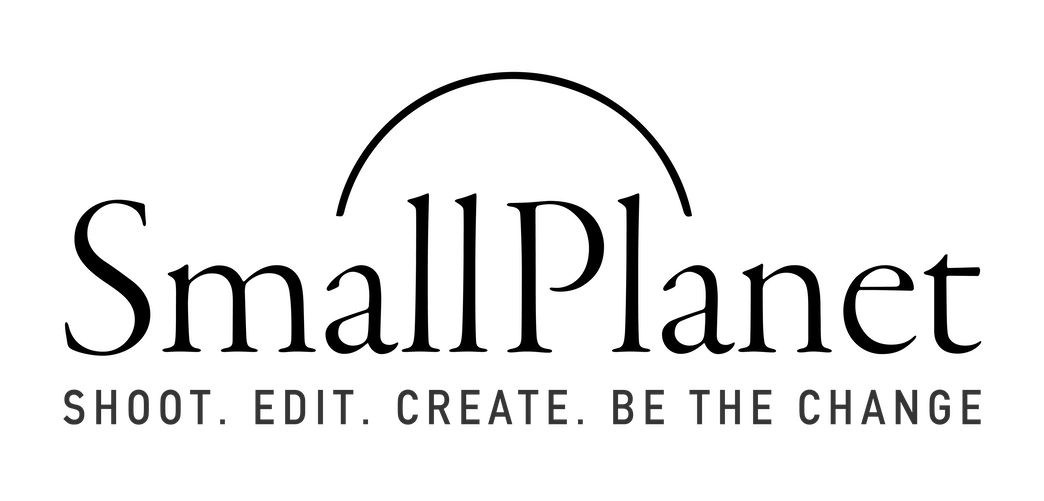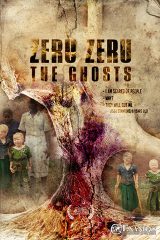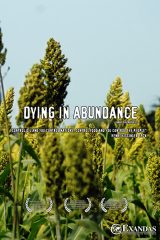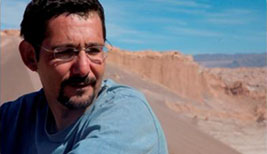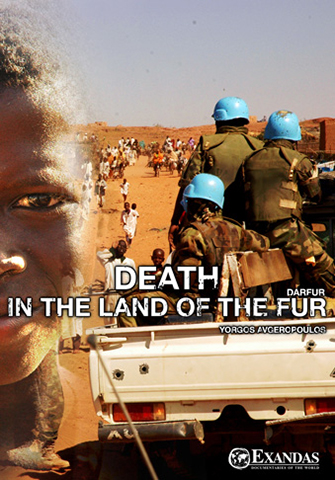
Death in the Land of the Fur
Dir: Yorgos AvgeropoulosSince 2003 Arab paramilitaries known as “Janjaweed”, along with the Sudanese army, have been regularly conducting raids against revolted African tribes in the Darfur province, in the west part of Sudan. So far more than 2.2 million people have been dislocated from their villages and have become refugees and more than 300.000 people have been murdered. Yorgos Avgeropoulos records – in some cases “legally”, in others “illegally” – death and persecution in the context of a relentless civil war. A war that began in the form of a small scale conflict over some land and water, as a consequence of climate change. “Aided” by the country’s dictator, President Bashir, it has turned out to be one of the most savage of today’s wars; a tragedy that, while unfolding right before the eyes of the international community, seems to be well hidden behind the desert dust…
Watch the Film Now!
Choose the language you prefer and stream the film in Full HD from any digital device. Enjoy your private screening!
Buy the DVD
€11,04
Public Screening
Are you interested in organizing a public screening of our film? Send us an email with your inquiry and we will be glad to assist you!
Educational / Library Use
Are you interested in enriching the library of your institution with our film? Contact us and let's create together an informed public!
- DURATION: 60min
- AVAILABLE IN THE FOLLOWING LANGUAGES: English | Greek
- AVAILABLE VERSIONS: English (60min) | Greek (60min)
- YEAR OF PRODUCTION: 2009
- Written, Produced and Directed by: Yorgos Avgeropoulos
- Production Manager: Anastasia Skoubri
- Director of Photography: Yiannis Avgeropoulos
- Editing: Yiannis Biliris, Anna Prokou
- Original Music by: Yiannis Paxevanis
- Research Coordinator: Aggelos Athanasopoulos
- Research conducted by: Achilleas Kouremenos
- Website Coordinator - Editor: Apostolis Kaparoudakis
PRODUCTION NOTES
“I am watching the sheep in the oasis. I see Janjaweed storming, fast, on horses’ and camels’ backs, bearing Kalashnikovs, shooting and yelling ‘shoot the slaves, shoot the blacks’! I have seen people fall over, covered in blood. They were hunting the children. They took some from us, we never saw them again. They took all of our animals too. Then the planes came and bombed the village.”
Abd-Al-Rahman, 13 years old.
“Darfur” means “Land of the Fur”. It is a province in Sudan, the size of France. It took its name after the African tribe of the Fur, which is one of the biggest in the region.
In Darfur there are tribes of African and Arab origin.
Usually Africans are farmers.
Arabs, by contrast, are stock breeding nomads. Armed Bedouins, rough people of the desert.
In the beginning of the eighties, dryness had already started to show its teeth.
Rain plane levels came down by 40%. The desert was expanding.
Scientists thought of it as a temporary game nature was playing. Later they were proved wrong.
It was one of the first manifestations of the phenomenon which, today, is called global warming. Arab nomads sought new pastures for their stock. This is how they got further down to the south and into the land of African farmers.
Riots broke out. Maybe the first riots ever as a result of climate change. However, these were small scale conflicts and usually they were resolved through tribal structures.
Until the moment when the government of President Bashir decided to apply a tactic that dated back to English colonial times. Taking advantage of local disputes—over a little land and precious water—so as to win one of the two parties over.
In 2003 African tribe peasants form rebel groups and start attacking government troops, accusing Khartoum’s concentrationist administration of the economic strangulation of Darfur, indifference regarding the development of infrastructures and being biased in favor of Arab speaking populations in the region. As a response, the government launches air bombings and, at the same time, introduces the Janjaweed, paramilitary Arab speaking nomads that have been recruited from various tribes.
“These are desert people”, we learn from Hassan Al Thurabi, prominent political figure in Sudan. Mr. Thurabi, together with today’s president, overthrew the government with a 1989 coup; soon though general Bashir got rid of his old ally. “These people don’t know a thing about orders, because they come from the desert where it is an open horizon. They are like animals, if you unleash them they will become wild, if you tame them, they will become tamed. They are just wild horsemen, like ancient tribes, Barbaric, you know…”
The name Janjaweed became synonymous with disaster. Their name allegedly means “Devil on a horse’s back” in an Arab dialect. Nothing was left standing after they invaded the African villages.
“They had horses, they were running… They attacked our village”, are the words of those who got away from Shirba and Seleya, two communities that were utterly destroyed last year. “Thousands of innocent people, farmers, killed in their fields. Afterwards they came and burnt the village, killed the residents and threw the boys in the fire. They burnt the boys and the girls they were pretty… they raped them. They harshly whipped the old folks and killed the men. We lost our land, our villages, our whole country.”
To this day, more than 300.000 people have been killed and more than 2,2 millions have been expelled from their homes following the conflict of the rebels with the army and the Janjaweed.
In “Death in the Land of the Fur” Yorgos Avgeropoulos is recording a tragedy of which we know very little. Based in Jeneina, a city in Darfur’s wild west, he wanders in refugee camps, in the bombed villages of the desert and follows the forces of the U.N. that haven’t managed to offer any tangible solutions, sticking basically to plainly observing and keeping track of the facts.
Filming lasted three weeks and was interrupted on a number of occasions by men of the secret police who prosecuted him and director of photography Yiannis Avgeropoulos, taking them to the police station for questioning. With the President of Sudan Omar Bashir being accused of genocide by the International Criminal Court in The Hague, the Darfur issue is of outmost importance to the government. “Activists have deceived the international community regarding the situation”, says Gazi Salahedin , advisor to the President Omar Al Bashir. “It has turned into business in Hollywood, actors come into Darfur to pose with poor people. The whole thing has been exploited. I believe that Ocampo has taken up the activists’ cause. I think he has failed to distinguish between this and his job as a judge and is after the promotion of his image as a human rights activist.” Moreover, he points out that, beneath the prosecution and the description of this case as “genocide”, lie Sudan’s bad relations with the United States of America which have opened the road to the exploitation of the country’s oil reserves by China.

